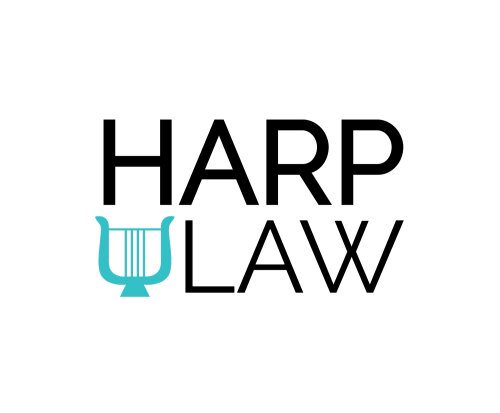Best Nonprofit & Charitable Organizations Lawyers in Detroit
Share your needs with us, get contacted by law firms.
Free. Takes 2 min.
List of the best lawyers in Detroit, United States
About Nonprofit & Charitable Organizations Law in Detroit, United States
Nonprofit and charitable organizations in Detroit operate within a unique legal framework that requires adherence to both federal and state regulations. Michigan laws, complemented by federal statutes, govern these entities to ensure transparency, accountability, and effectiveness in fulfilling their missions. Nonprofits in Detroit serve a wide variety of community needs, from education and health to arts and environmental conservation. Understanding the legal requirements and obtaining appropriate legal advice can help your organization thrive while maintaining compliance with the laws that govern its operation.
Why You May Need a Lawyer
Legal assistance can be crucial for nonprofits at various stages of their lifecycle. Here are some common scenarios where legal help might be necessary:
- Establishing a nonprofit or charity, including drafting articles of incorporation and bylaws.
- Applying for tax-exempt status under Section 501(c)(3) or other relevant sections of the IRS code.
- Navigating state-specific compliance issues related to fundraising and financial reporting.
- Addressing employee and volunteer-related legal matters, such as employment contracts and liability concerns.
- Handling issues of corporate governance and potential organizational disputes.
- Ensuring compliance with the Michigan Nonprofit Corporation Act and other local regulations.
Local Laws Overview
Operating a nonprofit in Detroit requires understanding key aspects of local laws, including:
- Michigan Nonprofit Corporation Act: This act outlines the procedures for creating and managing nonprofit corporations in Michigan, highlighting rules for governance and accountability.
- Charitable Solicitation Laws: Organizations must be aware of the laws governing fundraising activities, which may require registration with the state's Attorney General's office.
- Property Tax Exemptions: Certain nonprofits in Detroit may be eligible for property tax exemptions, but they must apply and qualify under specific conditions.
- Employment Laws: Nonprofits, like other employers, must comply with federal and state employment laws, including wage and hour regulations, worker’s compensation, and anti-discrimination laws.
Frequently Asked Questions
What is the process for starting a nonprofit in Detroit?
To start a nonprofit in Detroit, you must draft and file Articles of Incorporation with the Michigan Department of Licensing and Regulatory Affairs, create bylaws, apply for an Employer Identification Number (EIN), and file for federal and state tax-exempt status.
How do I apply for 501(c)(3) status?
To apply for 501(c)(3) status, you'll need to file IRS form 1023 or 1023-EZ, depending on your organization's projected revenue. Ensure your organization meets the requirements to qualify for this status, primarily operating for charitable, religious, educational, or scientific purposes.
Are there annual reporting requirements for nonprofits in Michigan?
Yes, nonprofits in Michigan must file an annual report with the Michigan Department of Licensing and Regulatory Affairs. Tax-exempt organizations must also file an annual return with the IRS, typically form 990, 990-EZ, or 990-N.
What are the transparency requirements for Detroit nonprofits?
Detroit nonprofits are required to provide specific financial and operational information to the public, including filing the Form 990 with the IRS and adherence to the Michigan Nonprofit Corporation Act’s rules on transparency.
Can a nonprofit in Detroit earn income?
Yes, nonprofits can earn income as long as it aligns with their mission and is not the primary reason for their existence. The income from unrelated business activities might be subject to Unrelated Business Income Tax (UBIT).
Do nonprofits need to pay sales tax?
Nonprofits may qualify for sales tax exemptions on purchases. Organizations must apply for this exemption through the Michigan Department of Treasury.
What happens if a nonprofit violates the law?
Violations can lead to penalties, fines, loss of tax-exempt status, or even dissolution of the organization. Maintaining compliance with relevant laws is crucial for operation.
How do we handle a dispute within our nonprofit?
It's advised to handle disputes as per the procedures outlined in your bylaws. Mediation or legal assistance can also help resolve conflicts while maintaining the organization’s integrity.
Is insurance necessary for nonprofits?
Yes, adequate insurance protects against various risks, including liability claims, property damage, and employee-related issues.
Where can I find pro bono legal services for my nonprofit in Detroit?
There are several pro bono legal service providers and nonprofit legal clinics available in Detroit, such as the Michigan Community Resources, that offer assistance to eligible nonprofits.
Additional Resources
Here are some resources that might be helpful:
- Michigan Attorney General’s Office: Oversees the registration and solicitation regulations for charitable organizations.
- Michigan Department of Licensing and Regulatory Affairs (LARA): Provides forms and guidelines for establishing and reporting requirements for nonprofits.
- Internal Revenue Service (IRS): Offers resources and guidance on obtaining and maintaining tax-exempt status.
- Michigan Community Resources: Offers pro bono legal assistance, educational programs, and other resources to support nonprofits.
Next Steps
If you need legal assistance for your nonprofit or wish to start one, consider the following steps:
- Consult a Legal Expert: Reach out to a lawyer or firm specializing in nonprofit law. Their expertise can guide you through complex legal matters.
- Attend Workshops and Seminars: Educational events can provide valuable insights into nonprofit management and legal compliance.
- Use Online Resources: Explore websites of legal aid organizations and governmental bodies for free resources and FAQs.
- Join a Nonprofit Network: Connect with local nonprofit networks or coalitions to share resources, information, and support.
By taking these steps, you can ensure that your nonprofit organization is legally compliant and structurally sound, prepared to effectively serve its community.
Lawzana helps you find the best lawyers and law firms in Detroit through a curated and pre-screened list of qualified legal professionals. Our platform offers rankings and detailed profiles of attorneys and law firms, allowing you to compare based on practice areas, including Nonprofit & Charitable Organizations, experience, and client feedback.
Each profile includes a description of the firm's areas of practice, client reviews, team members and partners, year of establishment, spoken languages, office locations, contact information, social media presence, and any published articles or resources. Most firms on our platform speak English and are experienced in both local and international legal matters.
Get a quote from top-rated law firms in Detroit, United States — quickly, securely, and without unnecessary hassle.
Disclaimer:
The information provided on this page is for general informational purposes only and does not constitute legal advice. While we strive to ensure the accuracy and relevance of the content, legal information may change over time, and interpretations of the law can vary. You should always consult with a qualified legal professional for advice specific to your situation.
We disclaim all liability for actions taken or not taken based on the content of this page. If you believe any information is incorrect or outdated, please contact us, and we will review and update it where appropriate.












